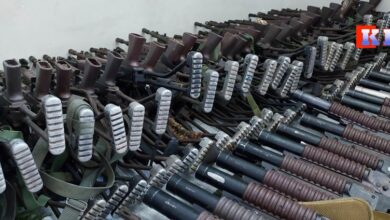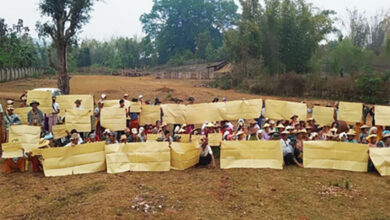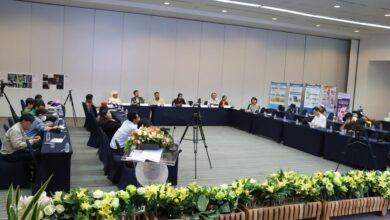Saw Paul Sein Twa Wins Goldman Environmental Prize
Saw Paul Sein Twa, the director of the Karen Environmental and Social Action Network (KESAN), has been awarded the Goldman Environmental Prize for Asia for his leadership in supporting the establishment of the Salween Peace Park (SPP) in northern Karen State. The US based Goldman Environmental Foundation honoured “six grassroots environmental activists” who have motivated others to “protect our planet”.
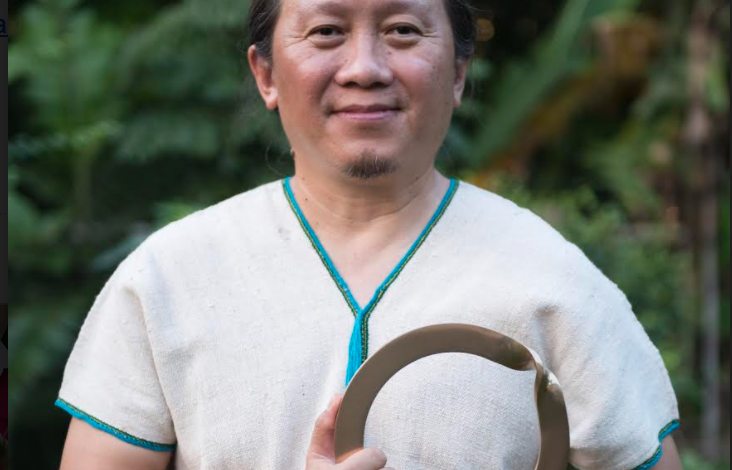
By Hsa Moo
Initiated by the local Karen community, the 5,485 km2 peace park aims to maintain the Karen’s unique way of life in the Salween River Basin, while protecting endangered and vulnerable animals like tigers, clouded leopards, pangolins, sun bears and gibbons and the forests they share.
The concept for the ‘peace park’ was born as a response to the threat of encroachment and unsustainable development in Mutraw District following the Karen National Union’s (KNU) 2012 bilateral ceasefire with the Tatmadaw and Thein Sein government, Paul Sein Twa explained.
During a meeting the KNU’s Lt Gen Baw Kyaw Heh expressed concern about the dangers of mega-development projects initiated by the Bamar government and Tatmadaw crony companies coming to northern Karen State. “One of the ideas to respond to the threat was to create a peace park,” Paul Sein Twa said.
Before the ceasefire, the Karen suffered a lot, he said. Mutraw District’s mountainous terrain and thick and lush jungles provided a natural stronghold to resist against the Tatmadaw’s offences. “The people there have a very strong connection to the land,” he said. The rugged landscape also shielded them from assimilation that affected other Karen communities living in areas controlled by the military regime.
After the KNU’s Manerplaw headquarters fell to the invading Myanmar Army and DKBA troops in 1995, Tatmadaw soldiers were able to push deeper into the district than ever before. Many Karen moved to the refugee camps in Thailand, while others stayed behind “to protect their land.”
Paul Sein Twa’s childhood was spent in both Mutraw District and in the Salween National Park on the Thai side of the border, surrounded by a rich bio-diverse nature. He became awakened to the dangers of environmental degradation as a teenager when he experienced flooding and landslides in the Salween River Basin and witnessed the effects of logging teak forests by Thai companies in the late ’80s and early 90’s.
After finishing high school and teacher training on the Thai border, a young and inquisitive Paul Sein Twa translated for an environmental training conducted by Steve, an environmental instructor from New Zealand, at a school in the Mae Rama Luang refugee camp in 1996.
Around the same time, Paul Sein Twa learned of the military government’s plans to build a series of hydroelectric dams on the Salween River that, if completed, would inundate his homeland. Becoming aware of the vulnerability of his people’s environment to the strategic development plans of the Myanmar regime – the same ominous entity that displaced Paul Sein Twa and his family so many times as a child – was pivotal in his decision to dedicate his life to environmentalism in the Salween River Basin.
Paul Sein Twa explained that Steve was also involved in a campaign against the Yadana Gas Pipeline “in those early days when no-one talked about these issues.” Later, Earth Rights International launched a lawsuit against Unocal on behalf of villagers who said they had been used as forced labour by the Myanmar Army during pipeline construction.
After the environmental training, Paul Sein Twa and Steve formed the Karen Nature Conservation Group in 1996 with other participants from the course. They did organic gardening, waste management and watershed conservation in the camp.
Paul Sein Twa also focused on environmental education on the other side of the Thai border in Kawthoolei, the Karen homeland, producing local language materials. In 2001, he and other Karen established the Karen Environmental Social Action (KESAN).
The group’s first major activity was to assess deforestation caused by logging concessions issued by the Myanmar dictatorship in northern Karen for a report published in Karen and English with a European partner.
Over the following years, Paul Sein Twa directed a wide range of activities including wildlife and forest monitoring and protection, community-based livelihood development, strengthening indigenous land demarcation efforts and community forest initiatives, advocacy and educational media production and supporting the evolution of indigenous environmental consciousness among ethnic nationalities in Myanmar. All of these experiences informed his involvement in working to make Salween Peace Park a reality.
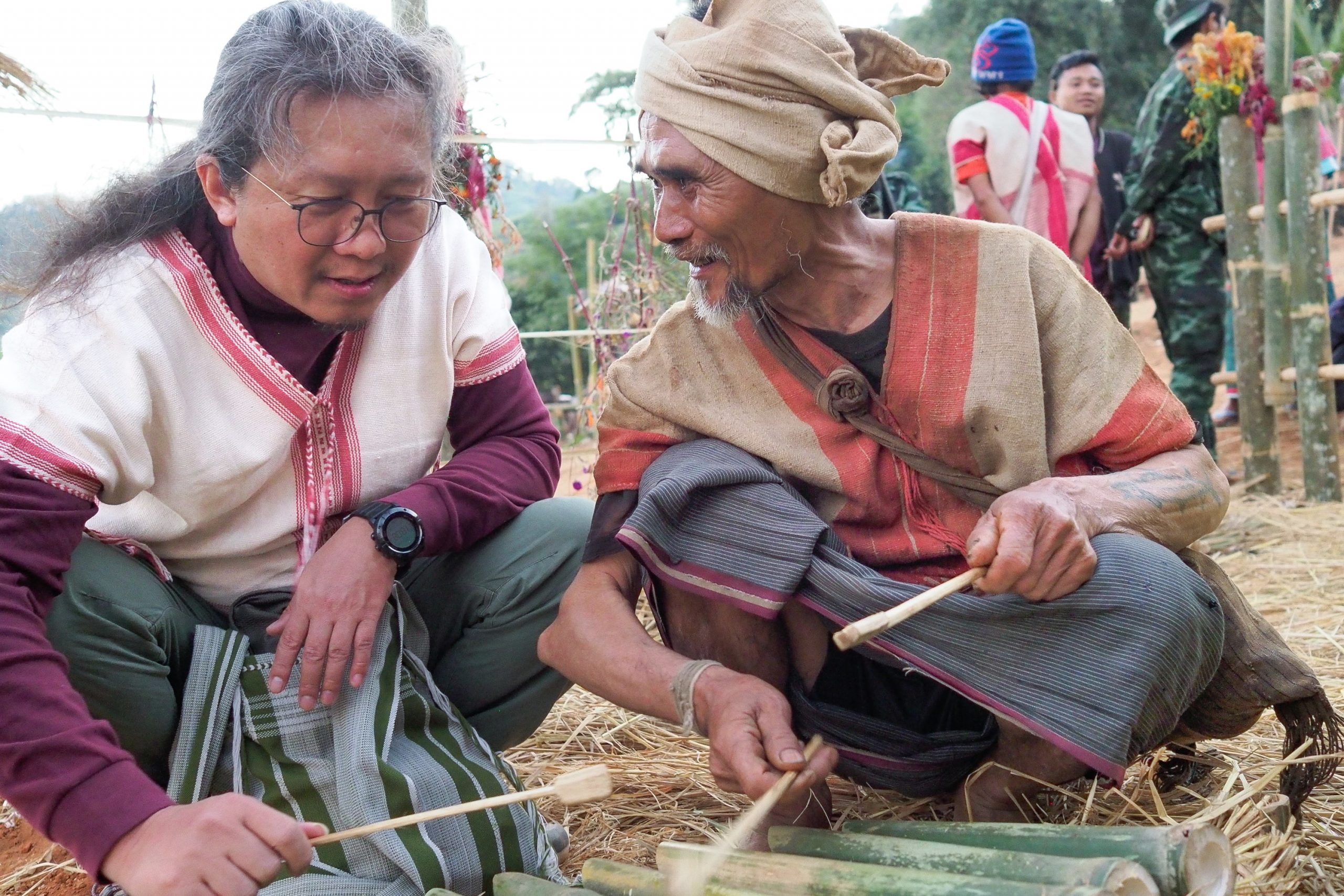
The Salween Peace Park was officially declared in December 2018, after years of extensive consultations with many of the different communities living in Mutraw District about the management of land and resources for both the Karen people and for the wildlife.
What distinguishes the Peace Park from other conservation efforts around the world is that its proponents are attempting to strike a balance between preserving the culture, livelihoods and autonomy of the Karen people, while preserving the forests and rivers for the animals – and themselves.
An interesting thing that developed during the park consultations was the renaissance of a traditional Karen land governance system called “Kaw” long upheld by the animist Karen living in the region.
The Kaw system provides a clear path for the protection of forests and animals. Karen traditions prohibit the hunting of certain species, many of them threatened or endangered, such as tigers, gibbons, greater hornbills and wild ox. The Kaw system reinforces the bonds between the Karen people and their ancestral lands, as well as with all the living and spirit beings that dwell there.
“We are an indigenous people who depend entirely on Nature for our livelihood and well-being,” Saw Paul Sein Twa said during his acceptance speech for the Goldman Environmental Prize, streamed on social media. “We use Nature, live in Nature, and protect Nature. This is why, despite decades of war and exploitation of natural resource on both sides of the Thai-Myanmar border, we are still surrounded by rich biodiversity.”
While the ceasefire has reduced “the attacks against the Karen people,” it hasn’t ended them, he explained. For the first steps towards peace-building, which the Myanmar Army claims to support, it must stop its periodic shelling of villages and shooting of our colleagues. The Myanmar Government needs to change existing laws and policies to ones supporting community-based efforts like the Salween Peace Park and other grassroot initiatives in the country. Instead of reinforcing its military bases in the area and upgrading access to them, the Tatmadaw needs to develop trust with the many traumatized Karen who have become refugees or internally displaced persons. And it must withdraw its bases dominating the most fertile lowland areas that used to be farms.
“The Myanmar police recently tried to arrest one of our colleagues who had exposed water contamination and other problems related to these “development” projects.” This kind of development is a “threat to our existence—not just for us as Karen indigenous people in our territory of life, but for all of us inhabitants of the planet,” he said. While “the disappearance of great trees, the pollution of our waters, the fires and droughts of climate disruption, and many other signs show that this path is a road to ruin.”
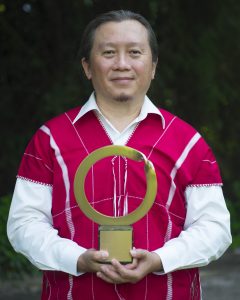
Saw Paul Sein Twa said winning the Goldman Environmental Prize is a “step toward gaining the international and local recognition and support that the Salween Peace Park needs to secure itself”. He called on supporters to help him to convince the government, military and developers alike to “secure places where nature and communities can live together and thrive.”
Saw Paul Sein Twa said the future of the Salween Peace Park depends on the government’s willingness to accept the Karen’s “security and freedom of movement within their ancestral land and territories.” This entails the government taking control of the Myanmar Army for demilitarization of the region. Further, the government must not allow any dams on the Salween River, while enlisting “the participation of indigenous peoples” for management of rivers and waterways.
The Goldman Environmental Prize was started by philanthropists Rhoda and Richard Goldman in 1989. Since its inception, 200 recipients from 90 countries have been awarded the prize.

